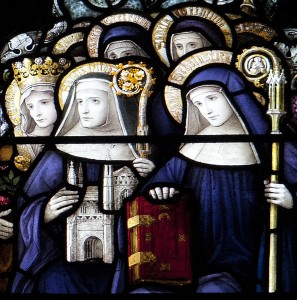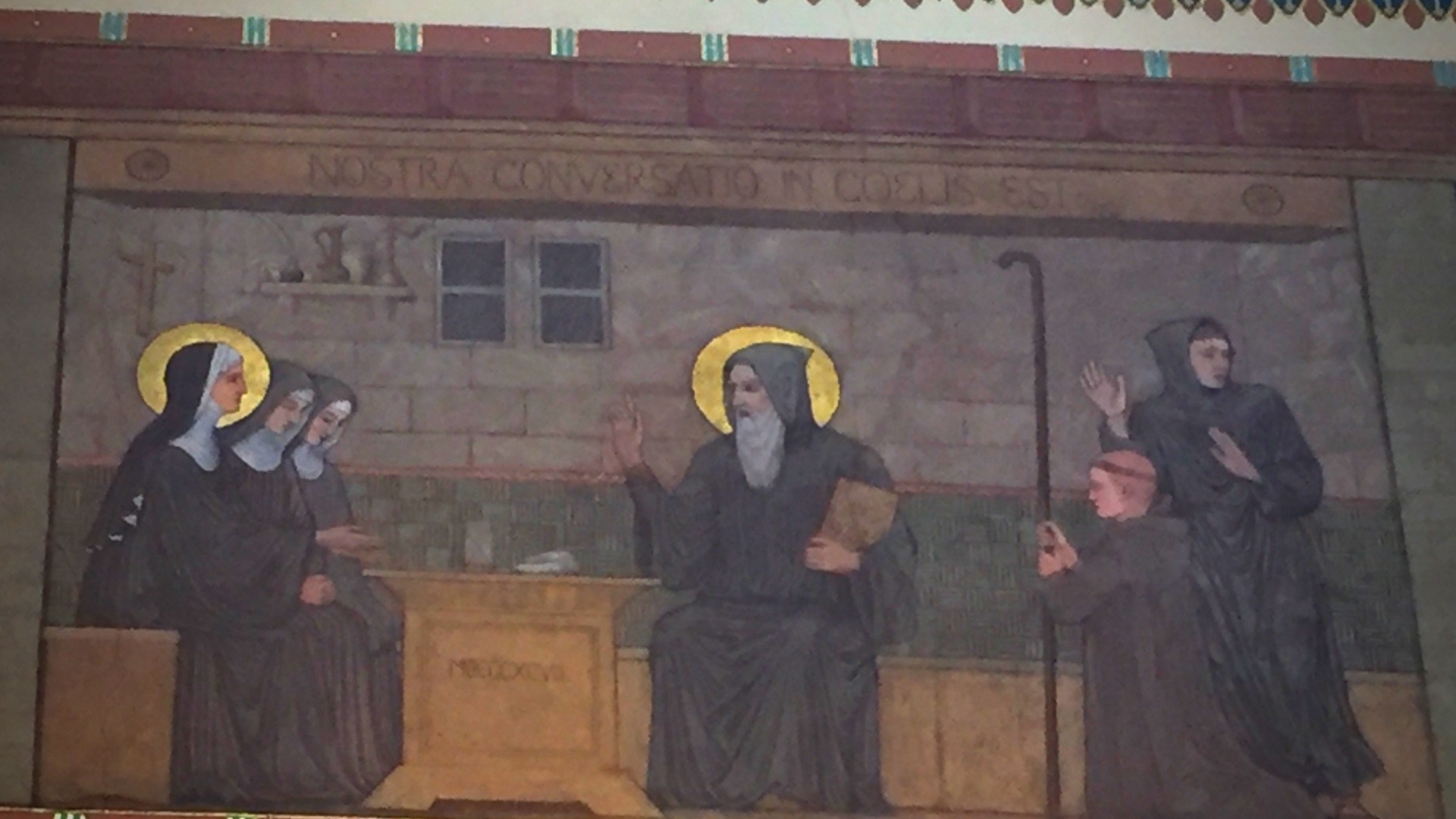Women breaking new ground in ministry need a network of peer support.

February 10 is the Feast Day of Saint Scholastica, the twin sister of Saint Benedict and founder of the first Benedictine convent for women. These “holy twins” were born late in the fifth century (480 C.E.) in Italy, to a wealthy family. Benedict is best known for establishing a number of monastic communities and for writing the Rule of Saint Benedict, which remains a source of inspiration for thousands of Christians, providing guidance for their daily spiritual lives.
Although lesser known than her twin brother, Scholastica provides inspiration of her own as a patron saint for nuns. Through the fifteen centuries since Scholastica lived in a spiritual community of women, the number and types of possible vocations for women in religious leadership has expanded enormously across the landscape of both Catholic and Protestant churches. In the last half century in North America and Europe, the entry of women into ordained and authorized leadership in Christian congregations has created one of the single largest changes to the face of the church in two millennia.
With these notable changes and growth of women’s pastoral leadership in the church comes an undeniable need for connection and support. Again Saint Scholastica offers inspiration. Adopting the name “Scholastica” Middle Tennessee women in ministry have a new opportunity to gather monthly for connection, support and inspiration, in a peer mentoring lunch series sponsored by Central Seminary, Scarritt Bennett Center, and Tennessee Cooperative Baptist Fellowship.
“Scholastica” began in the Fall of 2014, and is set to meet monthly from September through April of each year, drawing on resources that resonate with the Benedictine tradition, to build spiritual friendship, conversation, hospitality, and collegial relationships. Peer groups for ministers are an important source of spiritual guidance, learning, and support; they leads to healthier pastors and stronger congregations or ministries; and they assist in overcoming isolation that can undermine ministry.
Spiritual Guidance and Support
Ministers, like all people of faith, need guidance and support for their spiritual lives. Scholastica and Benedict, as spiritual ancestors in ministry leadership, knew the benefits of a shared life of prayer, work, study, worship, and hospitality in community formed in Christ. In a recent book on peer learning in ministry, So Much Better, author and sociologist of religion, Penny Long Marler distinguishes adult study and learning from childhood training. As Christian disciples and ministers, adult learners “need to be convinced that a learning experience is really worth their time and effort.” Marler observes that for pastors “commitment hinges on the promise of something more that really matters.” Ministers benefit from a circle of peers who help them articulate what they need and want to learn so they may grow in their vocations of leadership.
Better Pastors and Better Congregations
Two national surveys of pastors (2010) reported strong evidence that involvement in peer learning and peer networks of support contributes not only to healthier and more balanced pastors, but also to stronger, vibrant congregations. In fact when pastors are part of intentional peer groups with facilitators and a clear plan for learning, they are more likely to be part of churches that are renewing their purpose and growing.
All ministers benefit from a supportive community of peers to thrive in ministry. When women are breaking new ground, especially in denominations that still harbor suspicions of women’s leadership, they need a network of peer support to meet the challenges they face daily and to overcome the isolation of ministry.
Overcoming Isolation
Ministry in congregations, hospitals, schools and non-profits is demanding work. To teach, lead, care for people, and bring lasting and meaningful change to situations, requires deep spiritual resources. It is easy for ministers to find themselves alone in their work, and expending more spiritual energy than they are receiving. That situation can foster isolation, resentment, and self-doubt. And isolation is especially detrimental for women in professional ministry, who remain a minority in nearly every Christian denomination.
Meeting with others who are doing similar work of ministry breaks down the isolation, normalizes the profound challenges of ministry, and allows space for honest self assessment – thinking neither too lowly nor to highly of oneself.
To be sure peer support alone will not solve all the challenges or riddles of ministry. However, making and sustaining connections with other ministers does enhance one’s spiritual, imaginative, and relational capacity for the practice of ministry. The middle Tennessee initiative “Scholastica” aims to foster:
- Peer conversation to support learning relationally over time about the practice of ministry;
- Fellowship at tables grounded in the practice of the shared supper and the communion of saints;
- Networking with other ministers to support and build relationships leading to more opportunities for collaboration in ministry;
- Mutual support for women who are often isolated in their work of ministry.
Scholastica is a saint for women called to ministry. She was said to be “one who loved more.” The work of ministry is grounded in the work of God’s love for humanity, and today we can gaze briefly into this one life of Saint Scholastica to say thanks for the work of God’s love.
+++++++++++++++++
This post first appeared at Baptist Global News: Perspectives.




